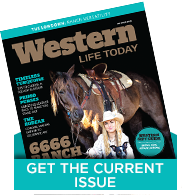If you love Western clothing and Western décor, chances are you love Pendleton. This decades-old company has become synonymous with the Western lifestyle, and is renowned the world over for its quality and design.
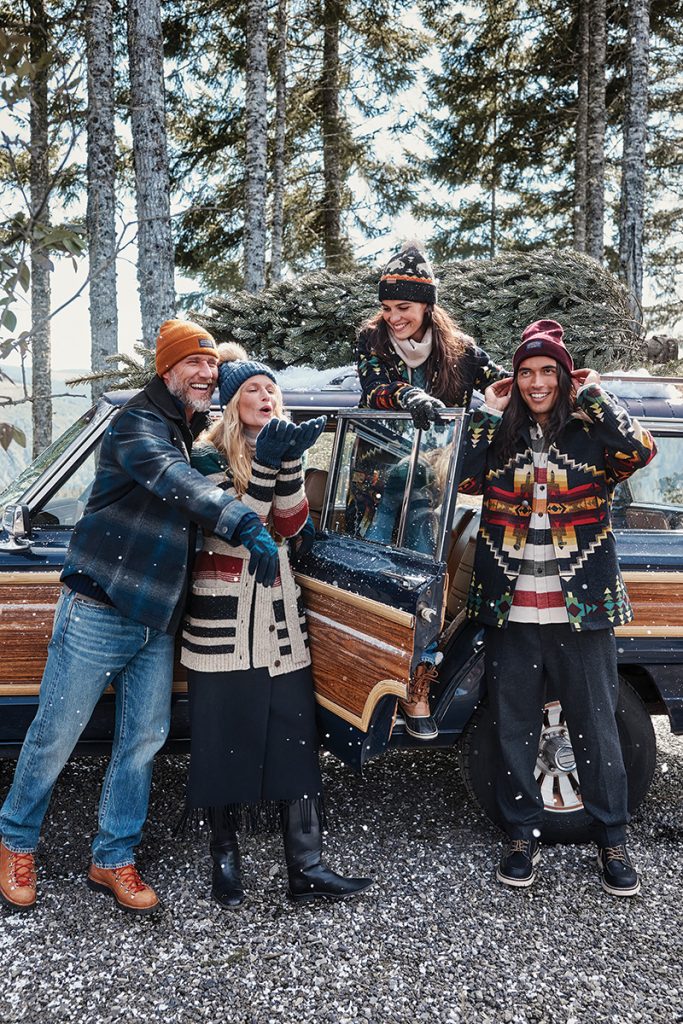
The story of Pendleton began in 1863, when Thomas Lister Kay brought his family to Oregon to begin a new life. An English master weaver, Kay had worked as a weaver on the East Coast before coming to Oregon to practice his trade.
Kay eventually involved his oldest daughter, Fannie Kay, in the wool mill business. Fannie ended up meeting and marrying retailer C.P. Bishop in 1876. They had three sons who all attended the Philadelphia Textile School in 1902, furthering the family tradition of weaving and learning new skills.
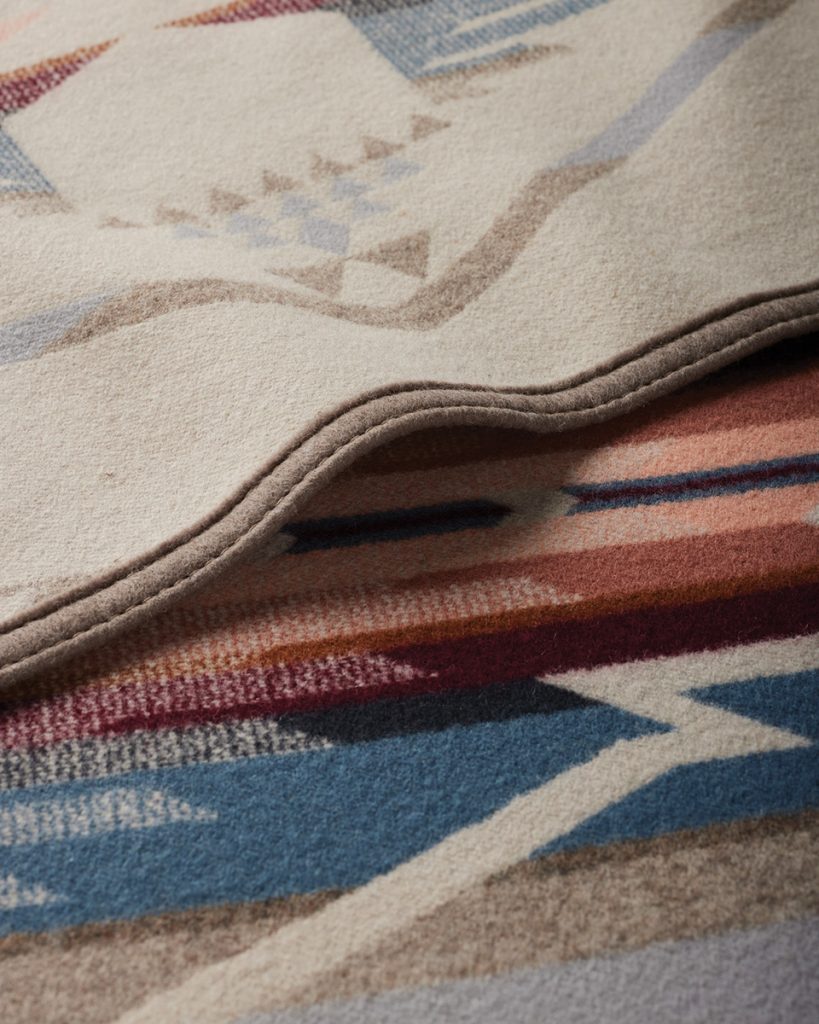
In 1909, Fanny and her sons established a woolen mill, using a building that had previously housed a business called the Pendleton Woolen Mill, which was now defunct. Eastern Oregon was home to many sheep ranches, so a woolen mill located in this part of the state was a logical choice. The close proximity to the source of the wool helped cut production costs.
In 1912, after having success with the Pendleton mill, the Bishops purchased a second mill in Washougal, Wash., connecting the business firmly to the Pacific Northwest. Blankets were the company’s primary focus, and were produced in a variety of colors and patterns using a Jacquard loom. In 1916, the company introduced the Glacier National Park Blanket, the first in a series of blankets with tie-ins to the West’s great National Parks.
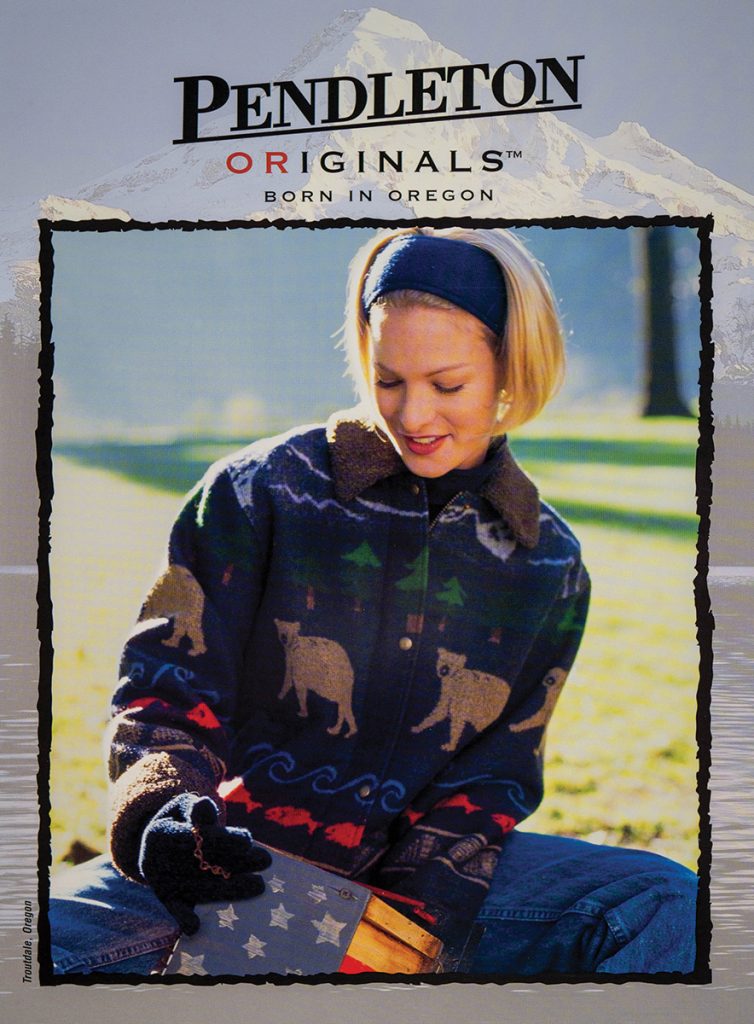
In 1924, the company introduced its first Western-style work shirts in colorful wool patterns. Before Pendleton’s colorful designs, woolen work shirts were drab and ordinary. Pendleton completely remade the work shirt business with its lively colors and patterns.
Decades later, when World War II started, Pendleton focused its production on outfitting members of the U.S. military with wool uniforms, and also providing them with blankets for cold nights on deployment.
A few years after the war ended, Pendleton started making clothing for women, beginning with the plaid 49ers jacket. Over time, the company added more products to its line, which now features both clothing and home décor.
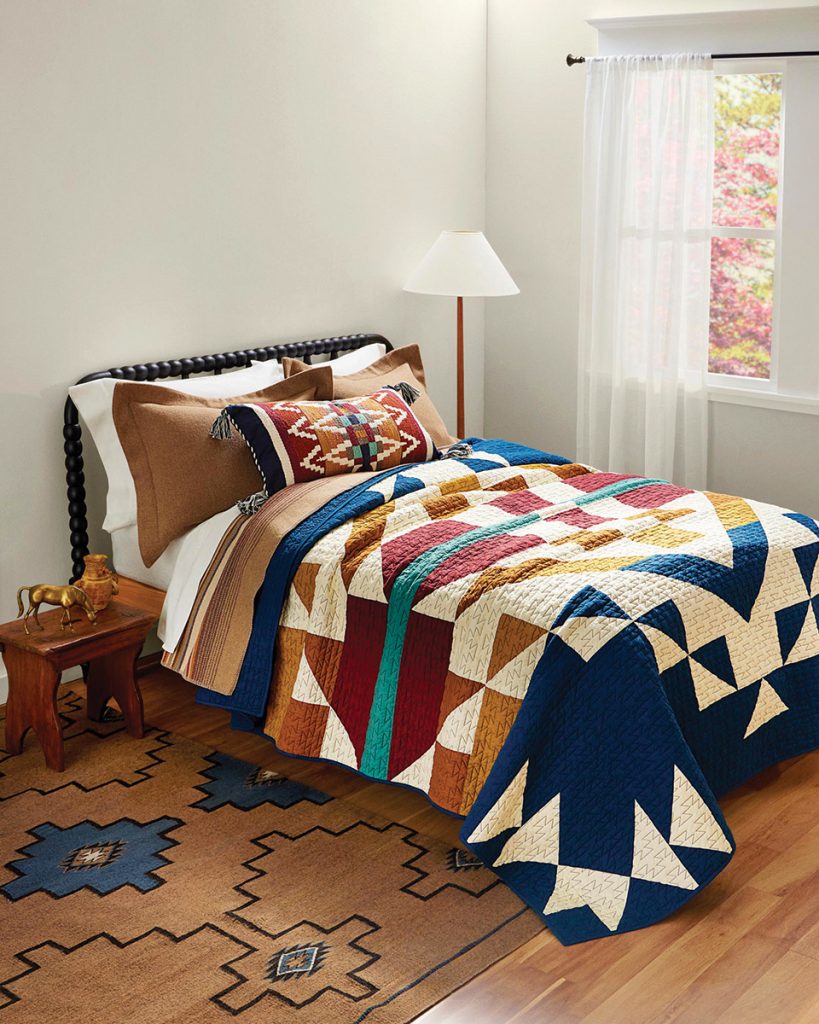
Western Ties
In 1909 when the Pendleton Woolen Mill first opened, more than a thousand woolen mills existed in the United States. Today, only a few mills remain, with Pendleton owning two of them. These two mills are the source of Pendleton’s Western-influenced wool products.
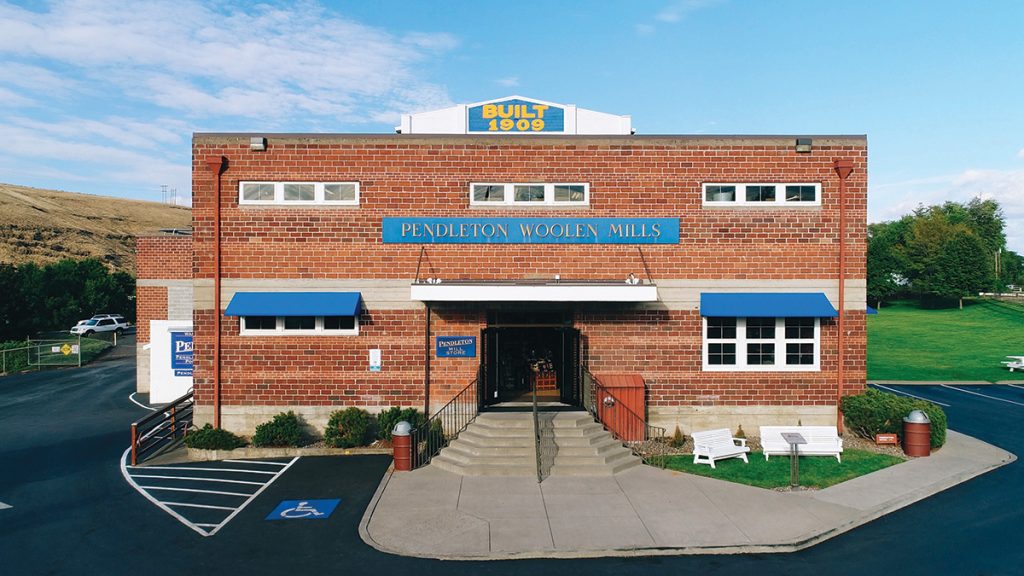
Pendleton’s history in Oregon and Western heritage are deeply ingrained.
“Pendleton traces its roots to the West,” says Caitlin Taylor, public relations manager for Pendleton. “For nearly 100 years, the company has worked with the same ranchers in Eastern Oregon to grow wool. The history between the company and the region creates an authentic connection that customers appreciate. They associate the brand with the traits of the idealized American West: authenticity, hard work, and connecting with the land and with people.”
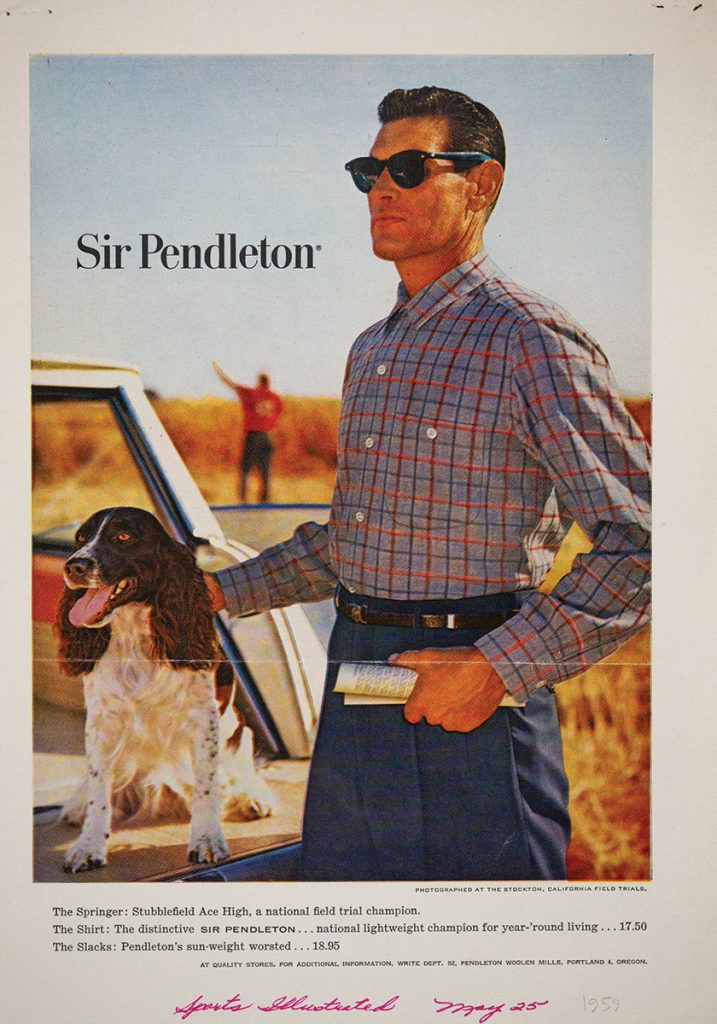
Pendleton’s designs and inspiration are often drawn from landscapes in the West, creating another connection to the Western sensibility.
“For example, the White Sands blanket is a design inspired by the National Monument of the same name in New Mexico, while the Souvenir Cardigan features patches of classic Western icons: a cactus, a lasso, a cowboy hat,” says Taylor. “One of the company’s signature shirts is the Canyon Shirt, designed with classic Western details of pearlized snaps and peaked yokes.”
From the beginning, Pendleton has had close ties to Native American communities. In the company’s early years, Pendleton was inspired by indigenous designs created by several different tribal nations. Today, many of the designs seen on Pendleton products are drawn from Native American art and artists.
“Partnering and giving back to the Native American community remains at the forefront of Pendleton’s philanthropic efforts, specifically in health, education and language preservation,” says Taylor.
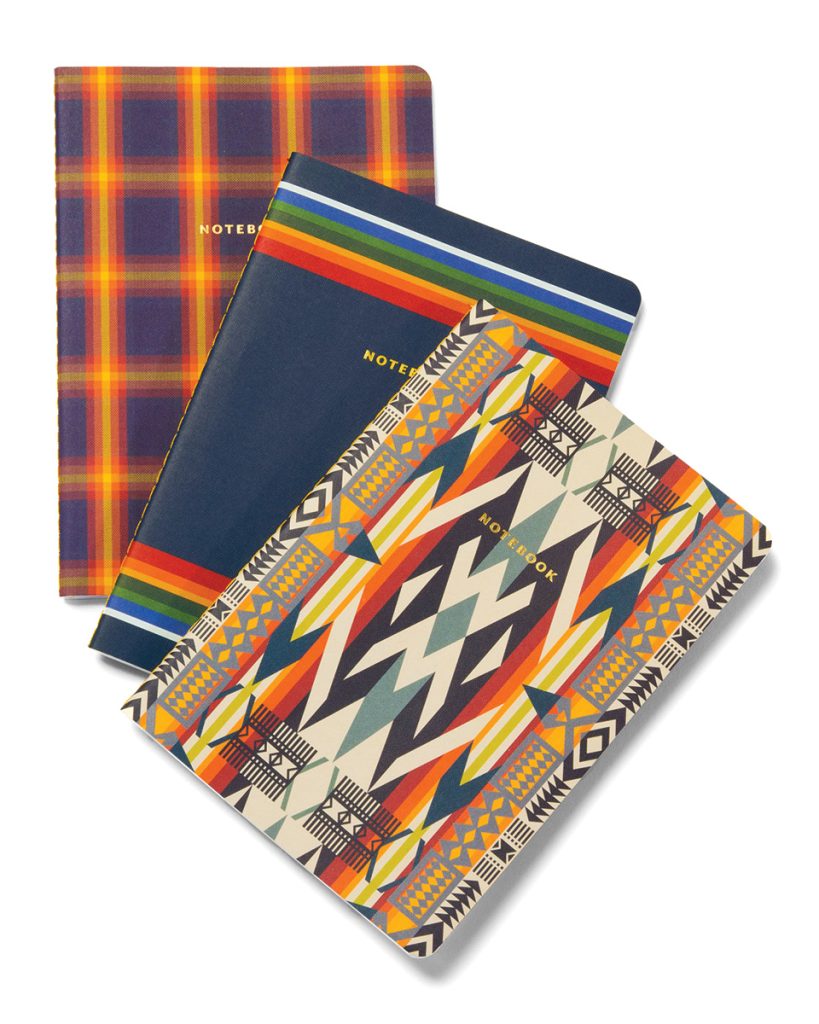
Pendleton’s charitable work includes support of the American Indian College Fund, where over the past 20 years, the company has funded scholarships for students attending tribal colleges. Pendleton also established an endowment to help build a stable funding source for future scholarships with the College Fund. To date, Pendleton has contributed more than $1.3M to this cause.
The company also hosts a design competition each fall for tribal students to submit their artwork for the chance to have their art woven into a blanket. Recent College Fund student designs include “Courage to Bloom” and “Many Nations.”
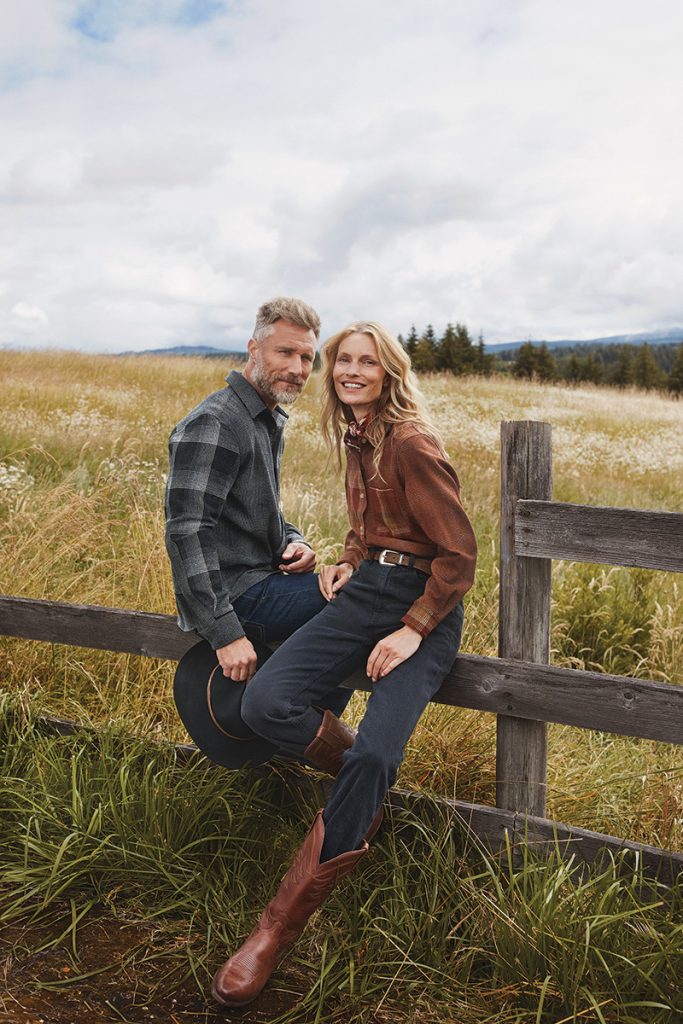
A philanthropic arm of the company called the Pendleton Fund provides yearly grants to non profits supporting Native American language preservation, and to support Native Americans who seek careers as healthcare professionals. A portion of sales from all Pendleton merchandise using the Chief Joseph pattern is contributed.
Another program supported by Pendleton is managed by DigDeep, an organization that works to bring fresh water to the Navajo Nation through its Navajo Water Project. Proceeds from Pendleton’s “Gather” blanket help fund this effort. The Gather design was created by Diné artist Emma Robbins, and features symbols of endurance.
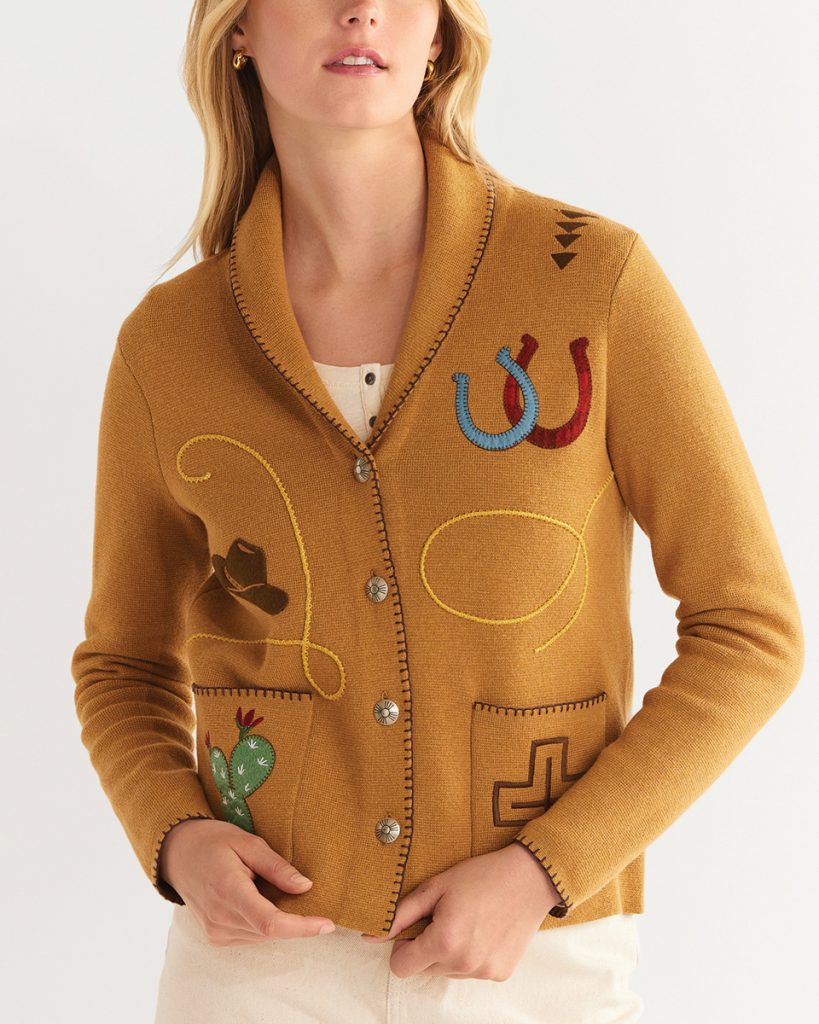
Pendleton has become such an iconic brand that it’s now being licensed on a variety of goods, including pet products, paper goods, rubber footwear, quilted bedding, eyewear, socks, and even whisky, to name just a few. But the most well-known of all the company’s products is the Pendleton wool blanket, which, for centuries, has been adding a bit of the West to homes everywhere.
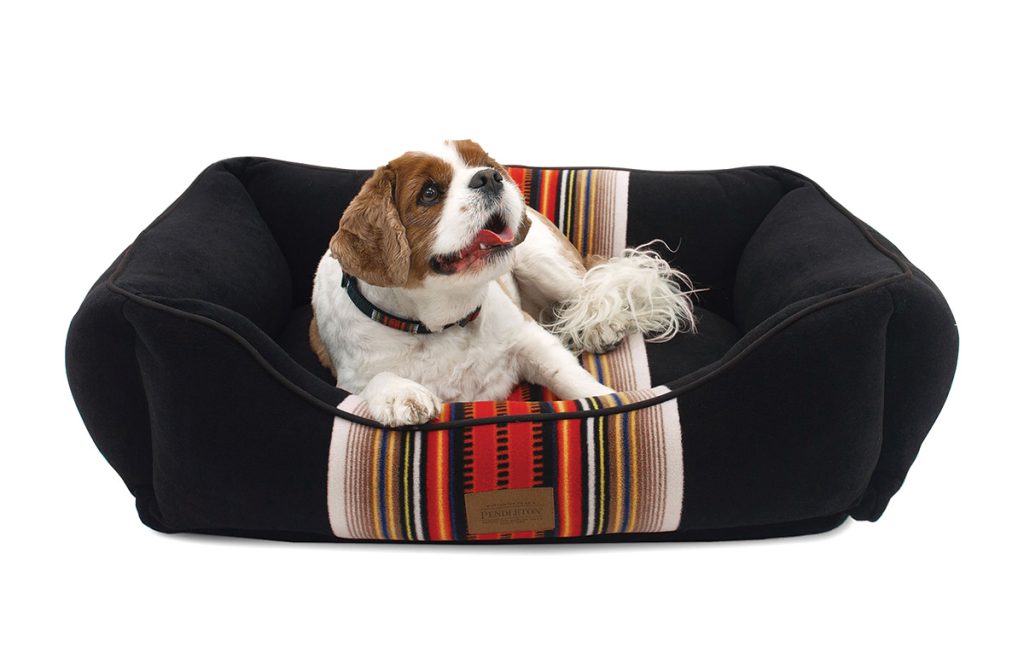
Pendleton Fun Facts
◆ In 1955, Pendleton opened Pendleton Dry Goods Mercantile on Disneyland’s Main Street. It remained one of the largest shops on Main Street until it closed in 1990.
◆ When The Beach Boys first formed, the band was called The Pendletons, a name they chose to honor their favorite plaid shirts. The band is wearing Pendleton’s Original Surf Plaid Shirt on the cover of the 1963 Surfer Girl album.
◆ Pendleton Woolen Mill’s founding family, the Bishops, were key partners in the creation of the Pendleton Round-Up, which takes place annually in Pendleton, Ore. First held in 1910, the Pendleton Round-Up is one of the most famous rodeos and Western cultural events in the country. The company still prioritizes involvement today, supplying prize blankets to the Rodeo Champions, Native American dancers, and pageant contestants.
◆ Pendleton’s popular Harding blanket design was inspired by President Warren G. Harding’s 1923 visit to Oregon to dedicate a portion of the Old Oregon Trail. At the ceremony, Chief Cap Sumkins of the Cayuse Tribe and Chief Poker Jim of the Umatilla Tribe presented President Harding’s wife, Florence, with a newly designed blanket in honor of the First Lady. Today’s Harding Jacquard blanket bears that original design.
This article about the Pendleton Woolen Mill appeared in the Winter 2024 issue of Western Life Today magazine. Click here to subscribe!


